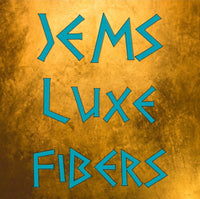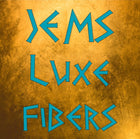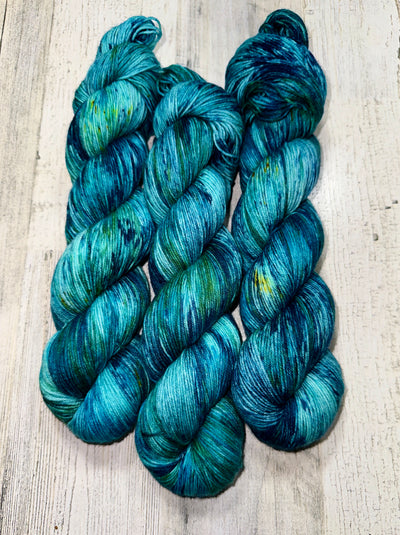Deep Blue Sea
Scylla” is a legendary monster who lives on one side of a narrow channel of water, opposite her counterpart Charybdis. The two sides of the strait are within an arrow's range of each other—so close that sailors attempting to avoid Charybdis would pass dangerously close to Scylla and vice versa.
The parentage of Scylla varies according to author. Some name Crataeis as the mother while others name Hecate as the mother. Her father may have been Apollo, or Poseidon or possibly Typhon. There are several other theories as to whom her parents really are.
The beginning of Scylla’s misfortunes is explained in a myth about her transformation. Scylla was once a beautiful, innocent creature, beloved by all the sea nymphs. She lived among the sea nymphs who wrought havoc on the hearts of young Greek men. She had milky skin, hair like silk, and a sweet face that could make a man fall in love with her in an instant. She loved to bathe in the pools by the sea side, combing her long hair with the nymphs’ combs and prattling to them about the men whom she had evaded. The nymphs, who had their own fair share of unwanted attention from men, tried to warn Scylla that people could become aggressive when they were in love, but the young maiden remained lighthearted and careless. She sunned herself on the beaches without any clothes and luxuriated in the tide pools.
Scylla’s beauty doomed her to become an object of jealousy. One day, a sea god name Glaucus caught sight of the beautiful nymphette. He was captivated, but when he tried to approach her, she fled on her dainty feet. Grumpy Graucus then complained about his rejection to “Circe”, a sea witch and a master brewer of potions. Little did Glaucus know that Circe cherished a secret infatuation for him, and when she heard about his desire for Scylla, she was enraged. She snuck to one of the nymphette’s favorite pools and poisoned it with a terrible potion. When the poor maiden returned to bathe, her delicate legs were deformed into a nest of snarling dogs, and she sprouted a long, thick tail with scales and spikes like a dragon and keeping her torso and sweet face. Some myths describe her with twelve tentacles and six grisly heads, connected to her body by serpentine necks. When Glaucus saw her again, he was horrified and heartbroken. He abandoned Scylla to her fate and cursed Circe for her jealous rage.
After her transformation, Scylla hid herself in the cliffs that overlooked her old bathing pool. She took out her rage against men whose unwanted passion she blamed for her fate by attacking their ships whenever they sailed by,
After she attacked many important voyagers the gods grew tired of Scylla’s bloodbath. They decided to add her to “the twelve labors of Heracles.” Incredibly, Heracles managed to slay her by cutting off each of her heads, one by one. For a while, she served as one of the guardians of the underworld. Then, she was resurrected by her father. Finally, Poseidon took pity on the sweet-faced monster and transformed her into a giant rock, thereby ending the miserable cycle of bitterness and revenge that her life had become.
Many idioms have derived from the stories of Scylla and Charybdis. Proverbial advice has been associated with the pair in circumstances where there is no escape without some cost, "to choose the lesser of two evils". Several other idioms, such as "on the horns of a dilemma", "between the devil and the deep blue sea", and "between a rock and a hard place" express similar meanings. The mythical situation also developed a proverbial use in which seeking to choose between equally dangerous extremes is seen as leading inevitably to disaster.
There were many other proverbs that came about from the bad result of having to navigate between the two hazards. Alternatively it may signify that the risks are equally great, whatever one does. Another use is in circumstances where a person has gone too far in avoiding one extreme and has tumbled into its opposite.
A later English translation glossed the adage's meaning with a third proverb, that of "falling, as we say, out of the frying pan into the fire”, in which form the proverb as an established equivalent of the allusion to falling from Scylla into Charybdis or into Scylla he fell, wishing to avoid Charybdis.
Available in the following yarn bases. For a listing of all yarn bases click here. Yarn Bases
Care of your hand knit garments
Please hand wash cold or lukewarm water and lay flat to dry. Even though this yarn does contain superwash merino, I do always recommend that you hand wash your knitwear. We use colorfast acid dyes for dying our yarn, and rinse until water runs clear. There may be a chance that some dye may bleed slightly in the first wash of your finished item. This does sometimes happen for speckled yarn and stubborn colors that are prone to bleed. For the first couple of washes, hand wash separately to be sure that no further bleeding.
There are no dye lots. We always try to sell from same dye lots but if not sure, we recommend blending the skeins as you work. Color saturation can differ from different dyelots.




